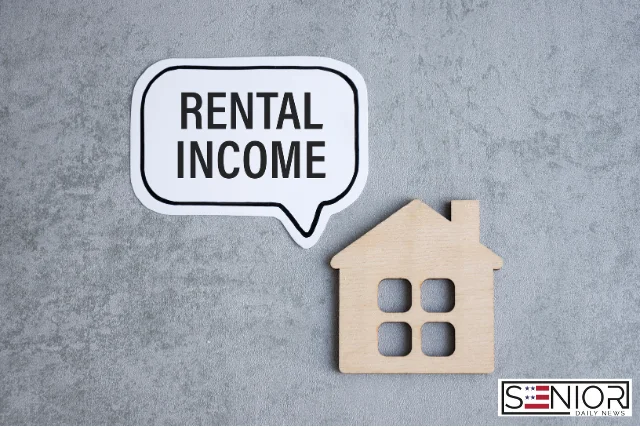Seniors & Early Retirement: 10 Common Questions Answered

Retiring early is a dream for many, but it comes with important financial and lifestyle considerations. If you’re thinking about early retirement, you probably have a lot of questions about money, healthcare, and how to make the most of your golden years.
Here are 10 common questions seniors ask about early retirement—answered!
1. What Age is Considered “Early Retirement”?
Early retirement typically means retiring before full retirement age (FRA), which is 67 for those born in 1960 or later. Many consider retiring in their 50s or early 60s to be “early retirement.” However, retiring before age 62 means you won’t qualify for Social Security benefits yet.
💡 Tip: Before making the decision, assess whether you have enough savings to cover expenses without relying on Social Security.
2. How Much Money Do I Need to Retire Early?
The amount you need depends on:
- Your expected expenses (housing, healthcare, travel, etc.).
- Whether you have additional income sources (pensions, rental income, part-time work).
- Your investment strategy and returns.
A common rule of thumb is the 25x Rule—you should have 25 times your annual expenses saved. For example, if you need $40,000 per year, you should aim for $1 million in savings.
💡 Tip: Use the 4% withdrawal rule—withdraw 4% of your savings annually to ensure your money lasts at least 30 years.
3. Can I Claim Social Security if I Retire Early?
You can start Social Security at age 62, but your benefits will be reduced permanently:
- If you claim at 62, you receive 25-30% less than if you wait until full retirement age (FRA).
- If you wait until age 70, your benefits increase by 8% per year past FRA.
💡 Tip: If possible, use savings to delay Social Security for a higher monthly benefit later.
4. What About Healthcare Before Medicare?
Medicare starts at age 65, so if you retire earlier, you need alternative health coverage. Options include:
- COBRA (temporary extension of employer health insurance).
- Affordable Care Act (ACA) Marketplace Plans.
- Spouse’s employer plan.
- Private health insurance.
💡 Tip: Budget at least $10,000–$15,000 per year for healthcare costs before Medicare.
5. How Can I Make My Savings Last?
To avoid running out of money, follow these strategies:
- Stick to a sustainable withdrawal rate (4% or less).
- Invest in a diverse portfolio (stocks, bonds, real estate).
- Keep a cash reserve for unexpected expenses.
- Reduce unnecessary spending (downsizing, cutting subscriptions).
💡 Tip: Consider part-time work or a side income to supplement savings.
6. Should I Pay Off My Mortgage Before Retiring?
Paying off your mortgage before retirement can reduce financial stress, but it’s not always necessary. Consider paying it off if:
✅ Your mortgage payment is a large part of your expenses.
✅ You have enough savings left after paying it off.
✅ You want peace of mind with zero debt.
However, if your investments earn a higher return than your mortgage interest, keeping the mortgage may be a better financial move.
💡 Tip: Compare your mortgage rate to your investment returns before making a decision.
7. Will Inflation Affect My Retirement?
Yes! Inflation reduces your purchasing power over time. If you retire at 60, your expenses could double by the time you’re 80.
Ways to protect against inflation:
- Invest in stocks and real estate (which grow with inflation).
- Consider Treasury Inflation-Protected Securities (TIPS).
- Maintain a diverse investment portfolio.
💡 Tip: Assume a 2-3% inflation rate per year when planning your budget.
8. What Are the Pros & Cons of Retiring Early?
✅ Pros of Early Retirement:
- More time for travel, hobbies, and family.
- Less work-related stress and better health.
- Ability to pursue passion projects or volunteering.
❌ Cons of Early Retirement:
- Longer retirement = more savings needed.
- Health insurance can be expensive until Medicare kicks in at 65.
- Potential Social Security reduction if claimed early.
💡 Tip: Consider semi-retirement or part-time work to ease the transition.
9. How Can I Stay Mentally & Socially Active in Retirement?
Many retirees struggle with boredom or lack of purpose. Stay engaged by:
- Traveling and exploring new places.
- Pursuing hobbies (gardening, painting, music, etc.).
- Volunteering for a cause you care about.
- Taking classes or joining community groups.
- Staying active with walking, yoga, or golf.
💡 Tip: Plan your retirement lifestyle before retiring, not after!
10. What’s the Best Way to Prepare for Early Retirement?
✔ Start planning early – The sooner you save and invest, the better.
✔ Create a detailed budget – Know your expenses and income sources.
✔ Boost your savings – Max out retirement accounts (401(k), IRA).
✔ Minimize debt – Pay off high-interest loans before retiring.
✔ Stay flexible – Be open to part-time work or adjusting spending.
💡 Tip: Work with a financial advisor to develop a solid plan tailored to your situation.
Image by Alexandra_Koch from Pixabay





